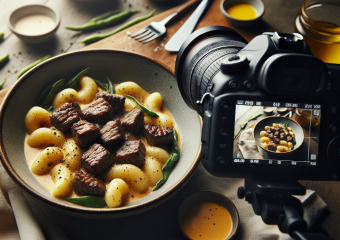Reasons To Sidestep The Newest TikTok Trend Oatzempic – Women’s Health
TikTok does it again. This time, the latest fad diet is all around oats, and – to be fair – quite humorously called oatzempic. But that’s just about where the levity stops, because as it turns out, this is one trend to steer clear of. We spoke with some experts on just why this diet isn’t worth the oats it’s whipped up from.
What is oatzempic?
With ingredient amounts varying depending on the TikToker, people are generally blending oats, water and lemon or lime juice into a thick drink to start off their day.

The mixture amounts to roughly 150-160 calories, based on a serving of 40 grams of dry oats. The drink, which is followed by a normal diet for the remainder of the day, is purported to keep people feeling full and sated.
The ‘Oatzempic Challenge’ suggests that you can lose up to 18 kilos in two months, which is about 2 kilos per week. To put that into context, for sustainable weight loss it’s only recommended that people lose around half a kilo per week.


When used as a meal replacement, an oatzempic serving is most likely a smaller portion than the breakfast meal it’s replacing, which could possibly mean that it reduces total daily calorie content and encouraging an energy deficit. The thing is, other more nutritious options with a similar calorie count are better substituted in here.
But, really, for starters let’s be honest with ourselves – this drink doesn’t scream appeal. I’m not bangin’ down the pantry doors to drink up uncooked oats, lime juice, and water. We don’t like them sour oaty… apples?
Does oatzempic work?
In theory the fad may work, but that’s mainly because reduced calorie consumption generally leads to weight loss. But the big caveat, and it’s a big one, is, as mentioned above, this isn’t healthy or sustainable.

While the ingredients themselves are actually quite clean – and can hydrate you, boost your vitamin C, and give a load of fibre and other macronutrients – oats can spike your blood sugar when not eaten with protein and healthy fats. It’s not what you’d call a balanced meal, and when eaten regularly you’d be missing out on a swathe of macronutrients.

There’s also no verified research to suggest that this trend will help you lose weight long-term. As is the way with TikTok trends, these hacks are often created by those who aren’t healthcare professionals. Some great things come from the platform, others, well, let’s leave.
Weight shaming and Ozempic
Beyond the lack of evidence behind the trend, it’s also important that we don’t promote rapid weight loss tactics. We’ve come far enough to realise that weight shaming and diet culture doesn’t promote a positive relationship with our bodies, and even if you see some initial results, a non-holistic approach to health – i.e. fad diets – often doesn’t ‘stick’.
Dietitian Liv Morrison flags the social concerns that can arise with the trend. “What you’re eating is meant to be enjoyable. We need to consider how a trend like this is how is going to impact our relationship with food, our labeling around otherwise healthy everyday foods and how we’re changing that definition online. I find it a little bit dangerous to correlate oats to an actual drug that is really beneficial for many people.” Add on top of that the platform is often consumed by teens and twenty-year-olds who are most at risk of disordered eating, and you’ve got a problem.
The problem with the promise of rapid weight loss
Morrison points out too that if the challenge is promoting the loss of 18 kilos, people may push it even further, thinking ‘hey, if I replace a few meals with the drink, maybe I’ll lose more.’
“That’s not a healthy approach, but that is where my concern kind of comes in. Whenever you see the word challenge, when it’s in relation to anything that’s food related or your body and weight change, I find it a bit of a red flag, my kind of ears prick because that is basically saying there’s a start and there’s a finish time. And when we’re looking at healthy, sustainable, progressional change, there isn’t that. Ideally, when it comes to creating a healthy lifestyle – it is a slow day-to-day kind of improvement, you’re seeing no restriction on any kind of food group. All foods can be included and enjoyed. And there isn’t an end goal really. This goes for food and exercise, it is something that you can do forever – it’s a way of life, rather than a diet or challenge. ”
Online trends and red flags
At the end of the day, it’s important to see the red flags when it comes to online trends. Who is it being promoted by? Is that a trusted source or is it a Joe Blow? Are there any problems around the wording that they’re using? Is the thing that you’re consuming actually enjoyable? Can you see yourself implementing that change long-term? And is it actually impacting your relationship with yourself or food or are you cutting out multiple food groups?
Steph Claire Smith, co-founder of Kic, weighed in, saying that, “Every time I see another quick-fix, fad diet flooding my feed it makes me so furious. Oatzempic is not an innovative weight loss recipe, it’s just restrictive dieting in fancy dress. Losing that amount of weight in such a short amount of time is not good for you. Not only are you depriving yourself of nutrients, you’re depriving yourself from the pure enjoyment of food.”
“I have been there. In my early 20’s I was in a place with my restrictive eating where I’d fall for any toxic diet culture messaging. That’s why I’m so passionate about speaking up and voicing the dark side of these fad diets. I questioned whether to address this trend on TikTok, because honestly, I didn’t want to give it the light of day, but I saw so many videos promoting the false “benefits” of this diet and I had to speak up. Being healthy and enjoying your food can co-exist.”
So there you have it. It’s a big juicy no from us.





